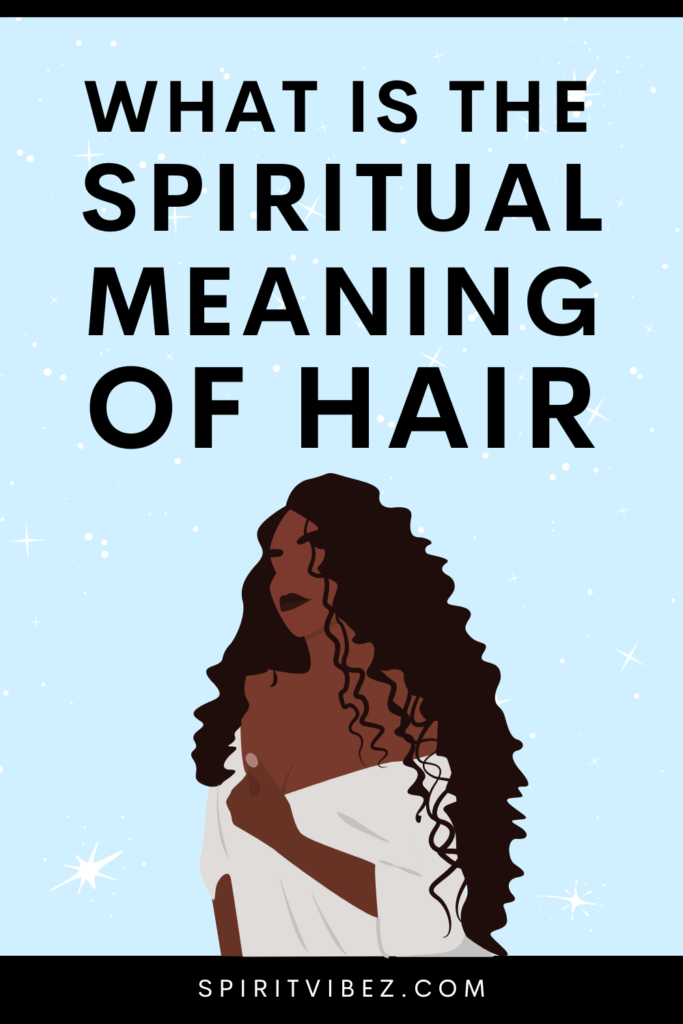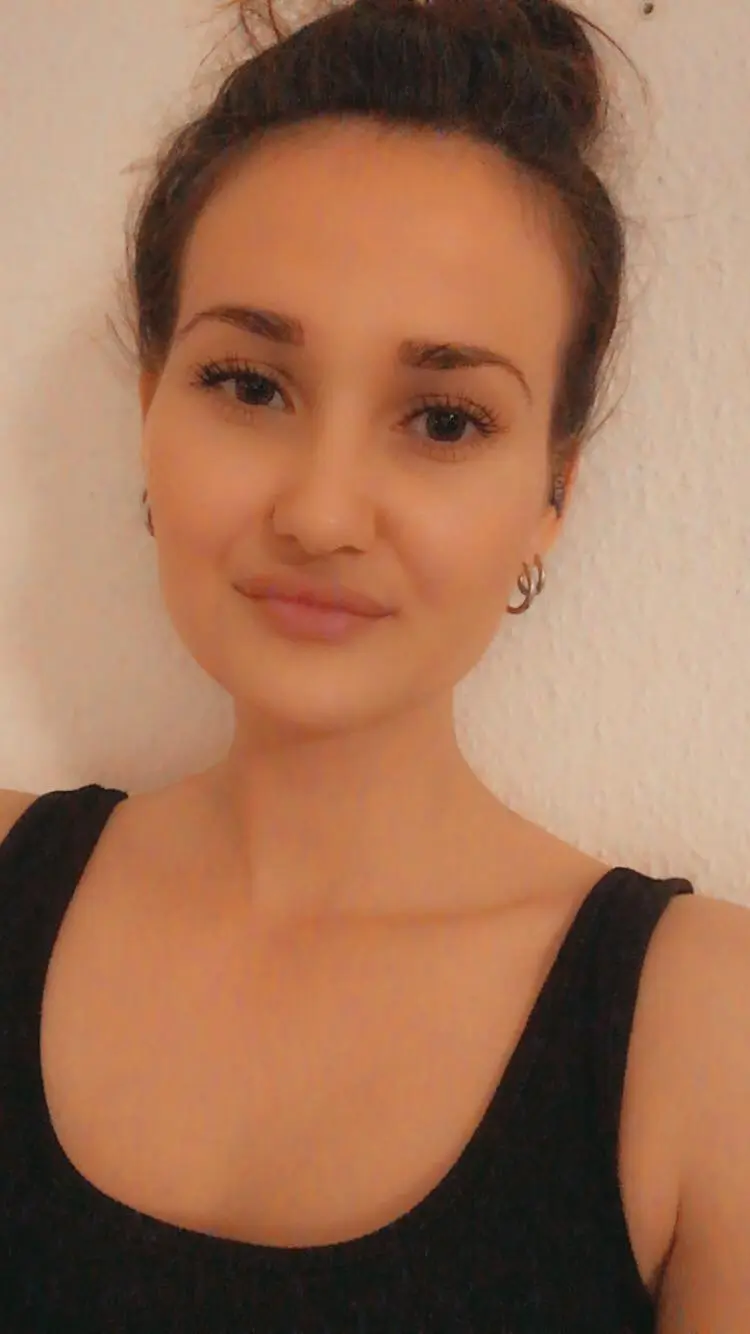Last Updated on February 7, 2025

Beyond its physical appearance, hair carries a deep spiritual significance that transcends time and culture.
From ancient traditions to modern philosophies, our hair and spirituality are deeply intertwined, symbolizing identity, vitality, and personal power. It serves as a bridge between the physical and spiritual realms, offering a channel for connection and understanding.
In today’s article, we will embark on a journey to explore the spiritual meaning of hair, unearthing its rich symbolism, rituals, and beliefs that have influenced humanity throughout history.
Prepare to uncover the mystic threads that bind us to the spiritual realm through our most intimate adornment—our hair.
What is the spiritual meaning of hair in different cultures?
The spiritual significance of hair varies across cultures. Here are some examples:
1. Native American cultures
In many Native American traditions, hair and spiritual energy are closely linked.
Hair is considered a source of power and spiritual connection, often serving as an antenna that links individuals to the spirit world, ancestors, and natural elements.
Long hair and spirituality are deeply connected, symbolizing wisdom, strength, and reverence for life’s interconnectedness.
2. Hinduism
In Hinduism, the practice of tonsuring, or shaving the head, is common as a form of spiritual devotion. It represents humility and surrendering the ego to the divine.
Tonsuring is often performed in temples or as part of religious rituals, symbolizing the removal of worldly attachments and the initiation of a spiritual journey.
3. Sikhism
In Sikhism, spiritual hair is revered. Uncut hair, known as Kesh, is seen as a sacred gift from God.
Sikhs believe that maintaining uncut hair demonstrates a commitment to their faith, identity, and spiritual connection.
4. Ancient Egyptian culture
Hair held significant spiritual meaning in ancient Egypt. Both men and women adorned their hair with elaborate hairstyles, wigs, and ornaments.
Hair was seen as a symbol of beauty, power, and divine protection. It was also believed that the gods communicated through the hair, making it an essential element in religious ceremonies and rituals.
5. Rastafarianism
Dreadlocks in Rastafarianism are a key example of hair in spirituality. It is associated with the biblical Nazirite vow and symbolizes a connection to Africa, the Rastafarian culture, and spiritual consciousness.
Dreadlocks are seen as a representation of naturalness, purity, and adherence to the principles of Rastafarianism.
6. Ancient Greek and Roman cultures
In ancient Greek and Roman cultures, the power of hair was recognized through elaborate hairstyles that symbolized personal identity and social status.
Elaborate hairstyles, adorned with jewelry and accessories, were common among both men and women.
Hair was also associated with beauty, youthfulness, and fertility.
7. Traditional Chinese culture
In traditional Chinese culture, long, healthy hair is considered a symbol of vitality, prosperity, and luck.
Hair is believed to contain vital energy or qi, and cutting it off is seen as a loss of energy. It is common for married women to keep their hair long and tied up to maintain their spiritual and energetic balance.
These are just a few examples of the diverse spiritual meanings associated with hair in different cultures.
Each culture offers a unique interpretation of spiritual hair, highlighting its connection to identity, energy, and divine forces.
What does hair symbolize?
Hair symbolizes various aspects depending on the context and culture. Here are some common symbolic meanings associated with hair:
1. Identity and individuality
Hair is often seen as a symbol of personal identity and individuality. It can reflect one’s culture, style, and self-expression, representing uniqueness and distinguishing characteristics.
2. Power and vitality
In many cultures, long, healthy hair is associated with power, vitality, and life force. It symbolizes energy, strength, and vitality.
Flowing or voluminous hair is often perceived as a sign of good health and vigor.
3. Beauty and attraction
Throughout history, hair has been considered a symbol of beauty and attractiveness.
Different hairstyles, colors, and adornments have been used to enhance physical appearance and appeal to others.
4. Spirituality and connection
Hair is often regarded as a spiritual conduit, connecting individuals to the divine or spiritual realms. It can be seen as an antenna that enhances intuition and spiritual awareness, fostering a deeper connection to the metaphysical world.
5. Social and cultural significance
Hair carries social and cultural symbolism, reflecting societal norms, values, and traditions.
Certain hairstyles or grooming practices can signify social status, belonging to a specific group, or adherence to cultural customs.
6. Transition and change
Hair can symbolize transitions and changes in one’s life.
Cutting or shaving hair may represent letting go of the past, embracing new beginnings, or undergoing spiritual or personal transformations.
7. Protection and intuition
In some spiritual beliefs, hair is believed to provide protection and intuition. It is seen as a shield against negative energies or influences and a source of heightened awareness and intuition.
8. Ancestral and family connections
Hair can serve as a symbol of ancestral and family connections.
In some cultures, long, uncut hair is associated with honoring and maintaining a spiritual connection with ancestors, carrying their wisdom and blessings.
These symbolic meanings are not exhaustive and can vary depending on cultural, historical, and personal interpretations.
The significance of hair is multifaceted and deeply intertwined with individual, societal, and spiritual perspectives.
Spiritual meaning of hair growth
Hair growth holds profound spiritual symbolism that is intricately connected to our personal and spiritual development.
As our hair gradually lengthens and evolves over time, it serves as a visible reminder of the transformative journey we embark on within ourselves.
Just as the strands of hair extend, so does our inner growth and spiritual transformation.
The process of nurturing and allowing our hair to grow teaches us the values of patience, perseverance, and resilience, mirroring the qualities necessary for our spiritual progress.
In this natural process of growth, we find a profound connection to the cycles of life.
The rhythm of hair growth reminds us to align ourselves with the natural ebb and flow of the universe, embracing the seasons of change and growth that are inherent in our spiritual journey.
As our hair flourishes and thrives, it becomes a physical manifestation of vitality, energy, and life force. It symbolizes our overall well-being and vibrancy on a holistic level, encompassing our physical, emotional, and spiritual selves.
Moreover, the lengthening of hair has been regarded as a symbol of wisdom and knowledge across various spiritual traditions. It is believed that as our hair grows, it acts as a conduit for cosmic energy, absorbing spiritual insights and higher wisdom along our journey.
Therefore, as we witness the growth of our hair, we are reminded of the profound connection between our external appearance and our internal transformation. It serves as a tangible representation of our personal and spiritual growth, a testament to the patience, resilience, and harmonious alignment with the natural cycles that define our spiritual journey.
Spiritual reasons why you shouldn’t cut your hair
The decision to refrain from cutting one’s hair for spiritual reasons is rooted in a multitude of interconnected beliefs and perspectives. It encompasses a deep understanding of the spiritual significance of hair and the profound impact it can have on one’s spiritual journey.
If you honor the natural growth of hair and allow it to flourish, you can cultivate a deeper connection with your spirituality.
In many spiritual traditions, hair is regarded as a powerful conductor of energy. It is believed to act as an antenna, amplifying and enhancing our spiritual connection and intuition.
By maintaining the length and integrity of our hair, we can more effectively receive and channel these energies, facilitating a heightened sense of spiritual awareness and insight.
Furthermore, uncut hair is seen as a reservoir of spiritual power. Cutting the hair is believed to diminish this power, as it represents a loss of the energy and vitality that has been cultivated over time.
Not cutting your hair, lets you preserve and harness this spiritual power, allowing it to continue to grow and nourish your spiritual journey.
Long, uncut hair also symbolizes wholeness and completeness. It serves as a reflection of accepting yourself in your natural state and embracing the inherent beauty and wisdom within.
By allowing the hair to grow, you honor its innate spiritual essence and foster a sense of harmony, both within yourself and with the spiritual forces that surround you.
Additionally, not cutting one’s hair can be a way of maintaining a connection to your spiritual lineage and ancestors.
Hair is believed to carry ancestral wisdom and blessings, and by keeping it uncut, you sustain a sacred link to your spiritual heritage. It becomes a tangible representation of your connection to previous generations, honoring their spiritual legacy and the teachings that have been passed down through time.
If you’re contemplating a haircut, consider the deeper meaning behind your choice.
Does it symbolize transformation, release, or renewal? Or are you drawn to preserving your hair as a source of spiritual power?
Whatever you decide, remember: your hair is a reflection of your energy, growth, and spiritual journey.
If you enjoyed this post on the spiritual meaning of hair, I would be very grateful if you shared it on Twitter, Facebook, or Pinterest! Thank you❤️
📌 PIN THIS POST FOR LATER


Hello, my name is Sara and I am the founder of Spiritvibez, I’m here to guide you on your spiritual journey toward healing, growth, and self-discovery. I believe that true transformation occurs when the mind, body, and spirit are aligned and working in harmony. Through Spiritvibez, I hope to inspire and empower you to deepen your spiritual practice, embrace your authentic self, and begin living your best life.

AMAZING!
I was reading my Bible a few hours ago and came across the story of Samson. When I got back to my office, I found your email message waiting for me, then I clicked on it. We all know that his unshaved head gave him his immense strength, via God.
Immediately I thought to myself, “OK, this is another burst of psychic energy coming through….synchronicity.”
Thanks Sara
Thank you for leaving a comment, David. I am happy to hear the email found its way to you just at the right moment!
FASCINATING!
I’ve many reasons to say thank you, you’ve greatly expand my thoughts about hair.
I’m happy to hear that you found the article fascinating 🙂
Explains why slave owners cut the hair of their slaves and made them cover their heads. It also explains why some have a problem with AAs wearing their natural hair.
Good article…though the section referring to Hindu practices are far from complete. Indian women traditionally dont cut their hair but keep it oiled, plaited and covered. Usually they only open their hair after washing it and letting it sun dry. Modern Indian women in cities are cutting their hair but the tradition is maintained in the villages.There is a whole tradition of Shiva worshippers that wear long natural dreadlocks. Saints and Swamis usually have long hair (and beards) which may be left open or covered with cloth or turban. It is traditionally prescribed for Hindi men to wear short hair but still keep a long Shikha which maintains their spiritual connection. The Shikha is kept tied in a knot except at special times and at death.
https://religion.fandom.com/wiki/Sikha#:~:text=The%20sikha%20or%20shikha%20(%C5%9Bikh%C4%81)%20is%20a%20Sanskrit
Thank you for adding this valuable insight and expanding on the traditional hair practices in Hinduism.